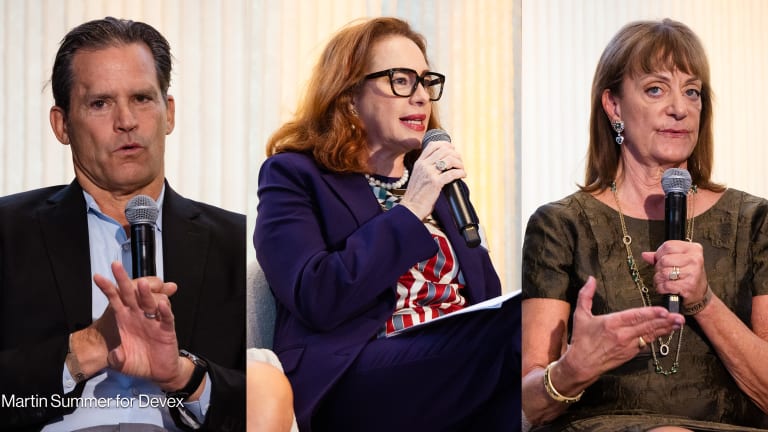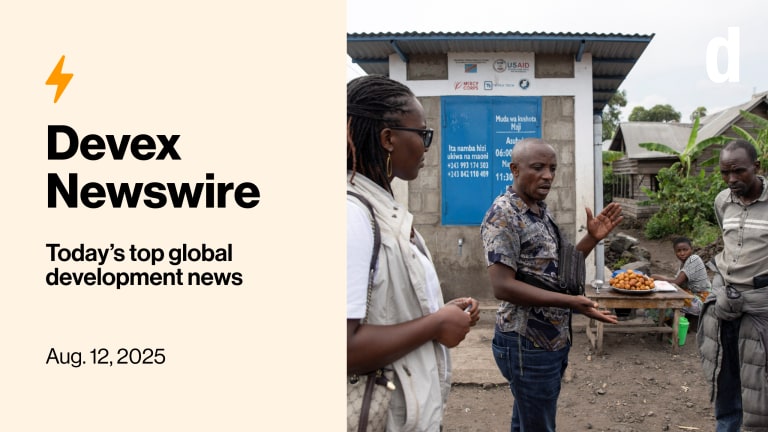Former USAID staffers who lost their jobs in this year’s dismantling of the agency have quickly built one of the sector’s most closely watched experiments in bridging the aid gap — and it just hit a major milestone.
On Wednesday, Project Resource Optimization, or PRO, announced that it has mobilized more than $110 million in philanthropic capital to sustain cost-effective health and humanitarian programs suddenly left without U.S. government support when the agency shuttered. And it mobilized that money in just over six months.
With a new anonymous gift, every project identified in PRO’s first wave of opportunities has now received funding that will keep it running for the next 12 months. That means some 41 million people in more than 30 countries will continue receiving life-saving aid despite the loss of USAID funding.








